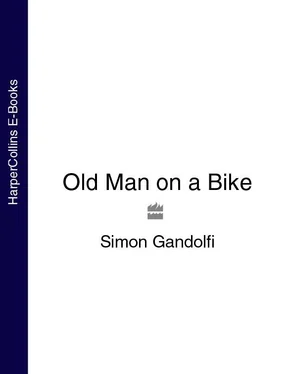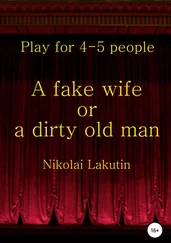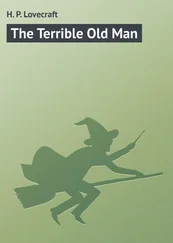The licenciada is a daughter of Guatemala’s vicious clandestine war. Murder, execution, assassination or fatal accident were the rewards for harbouring the wrong political thoughts.
The manner in which she fingers my card saps my confidence. She asks what questions I intend to ask the students. She will peruse my website before discussing the possibility with the principal. Will I call her in the morning?
‘With pleasure,’ I say, while mentally reviewing my site. The one piece of fiction is moral. It is humane. Would the licenciada be shocked at discovering that sexuality is its subject?
Should I cut the piece? Can I reach an internet café before the licenciada reads it? Why am I even thinking of cutting it? It is what I do best – or believe that I do best: portray characters in moments of intimacy.
The piece remains on the Web. I call the licenciada in the morning, only to be informed that the principal wishes to examine my work before reaching a decision the following morning.
What can I say, other than wonder weakly whether an elderly English writer could corrupt students of a good school in a mere thirty minutes? I thank her kindly and excuse myself. I have an appointment on Lake Atitlan.
I take the road down to the Pacific littoral. Recent torrential rains have swept bridges away. A truck and trailer have slipped off a corner on one of the dirt-surfaced diversions. Retalhuleu is well worth an uninteresting cup of coffee. The mountains are cloaked in coffee. Coffee is Guatemala’s biggest export. Why does the coffee served in cafés taste of mud?
From the coast I take the main highway towards Guatemala City (very busy), and then turn off towards Lake Atitlan on a narrow paved road that first crosses fields of sugar before climbing though cattle ranches and rubber plantations to coffee plantations and on into clouds in which Friesian dairy cows are barely visible in mountain paddocks.
I drove this area in the final years of the clandestine war in a borrowed car saved from the scrapheap. I recall mist and visibility down to a few metres and the pop of the rear tyre bursting. I got out of the car and walked round the back and looked at the tyre. I recall that I was on a ridge with pine forest on the left of the road. Four men appeared out of the forest. I write ‘appeared’ because they made no noise. They wore woollen ponchos and felts hats pulled low to hide their eyes and they carried machetes. They looked at me and they looked at the burst tyre.
One said, ‘The tyre has burst.’
I said, ‘Yes,’ and the others nodded in agreement.
One said, ‘Do you have a jack and a spanner?’
‘I’m not sure,’ I said.
‘Then we should look.’
I fetched the keys from the ignition. One of the men took the keys and opened the boot. He passed the jack to one man and the wheel brace to another and lugged out the spare tyre.
The men changed the wheel in absolute silence. They replaced the tools and the punctured tyre in the trunk, closed the trunk and handed me the keys. Then they vanished with equal silence back into the forest.
I remember sitting in the car for a while, shivering and semi-paralysed while the mist condensed and formed rivulets on the windscreen.
The cloud is as thick today and turns wet as I cross the shoulder of the volcano. I shiver and freeze in light rain on the descent towards Panajachel on Lake Atitlan. I ride down the main street and turn right at the pink-walled bakery to a small hotel within gates. I bargain a good room with an excellent hot-water shower down from one hundred to seventy-five quetzales. I walk towards the lake and the Hotel Dos Mundos. The Dos Mundos is beyond my present budget. Palm trees surrounding the pool have grown in the past ten years. I find room 12 and sit on the steps. Here I suffered my heart attacks. Ten years ago I crawled in agony out of this room and begged for a doctor. The doctor arrived on a trial bike and jammed a needle in my butt. I don’t know what else he did. I blacked out. The doctor worked at the state health centre up the street. He was training to be a heart specialist. So I survive. Back home in Havana none of my medical friends believed that free medicine and state-employed doctors existed outside Cuba – particularly in Guatemala.
I ask at the health centre and am told that doctors usually stay only a year. Nor can they put a name to my saviour – sad, as I am in Panajachel specifically to thank him.
Stalls selling clothes and rugs and blankets woven in brilliant colours by upland artisans are interspersed with mini-restaurants on the main shopping street. The street is narrow. On my first visit it was little more than a dirt track. Now it is tarred. Rain buckets down and the street becomes a river. Unable to escape, I order vegetable soup at a tiny six-table restaurant. The soup is good and freshly prepared. I know because I wait half an hour to be served. Trapped by the rain, I read the newspaper. The front-page photograph shows a car pockmarked with bullet holes: driver, wife and three children are dead. A leading article quotes a police report of 1200 armed attacks on buses in Guatemala City over the past five months.
Thunder explodes through much of the night. Meanwhile an equally noisy French group in the next room sort and pack their market plunder in preparation for an early bus.
To Antigua, Wednesday 31 May
I leave Pana at nine o’clock on the steep climb towards Guatemala City and am rewarded for the misery of yesterday’s descent with wonderful views of the lake and of the volcanoes rising beyond the far shore. The volcanoes wear raggedy miniskirts of pearl-grey cloud. I halt near the crest and watch a launch, made tiny by distance, drag white vees across the water. The vees seem tired and soon collapse to leave the lake calm and unmarked. The weather stays dry and I enjoy a fine run across the crest, with splendid views of forest way below. The great cone of Ajumulco dominates the horizon.
The road crosses an upland plateau of small farms. Curls of colour in the fields are Maya women stooped to harvest cash crops of salads, garlic and spring onions. Ancient pickups with bent chassis crawl crab-like past heavily laden donkeys.
When riding, I smile at everyone. In Mexico I became accustomed to smiles in immediate reply – cops included. Guatemalans are slower to respond or more cautious in responding. Perhaps these Maya peasants of the uplands have less to smile about or are unused to people smiling at them. Or do the scars of the clandestine war hamper their response – a war in which some 150 000 indigenous Guatemalans were butchered?
I ride into Antigua in early afternoon. I had expected this jewel of Spanish colonial architecture to cast its usual magic. Much has changed in ten years. I recall shops and cafés and guesthouses sprinkled among private homes. Now there is only commerce. Magnificent sixteenth-century doorways and passages to inner patios have been desecrated with kiosks in the scrabble for each extra dollar. The central square is backpacker territory. Maya women seem interlopers. Humble, they crouch as the backpackers hunt for bargains among the bundles of hand-woven clothes and blankets.
I search for a room within my budget and am shown a series of windowless cupboards attached to dank horrors that I am assured are bathrooms. Finally I strike lucky, both in hotel and in owners, who drop the room rate for an old man.
Charming young English honeymooners are fellow guests. The honeymooners have four months of travel in which to decide what to do with their lives. They find Guatemalans friendly and eager to talk. However, their smattering of Spanish limits conversation to the likes of ‘Have a good day’.
I miss the openness of Mexicans. With the election imminent, every Mexican, peasant or plutocrat, discusses politics. Guatemalans are cautious.
Читать дальше





![Джон Скальци - Questions for a Soldier [Old Man's War 1.5]](/books/418139/dzhon-skalci-questions-for-a-soldier-old-man-s-wa-thumb.webp)






